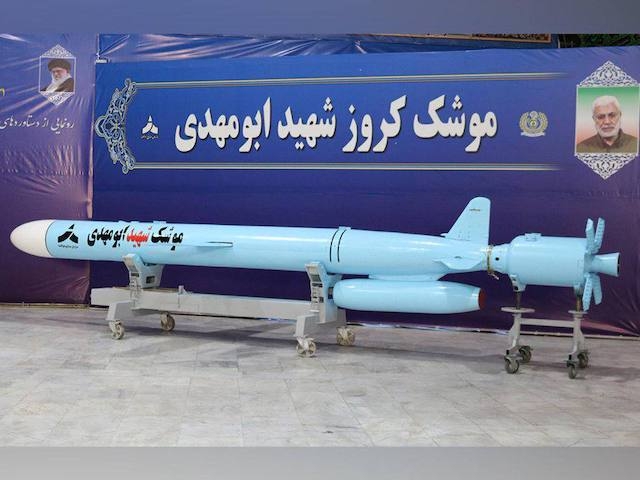As the Biden administration and Iran dive deeper into their talks surrounding a new nuclear deal, and the US is freeing up Iranian assets abroad previously sanctioned, the commander of the navy of the Islamic Revolutionary Guard Corps in Iran, Admiral Alireza Tangsiri, said that the Revolutionary Guards has equipped their vessels with locally produced missiles with a range of up to 2,000 kilometers.
Speaking yesterday in Tehran, Tangsiri said the missiles were placed on the Iranian-made warships. The commander said that the specific warship was equipped for the first time with locally produced vertical launch missiles as well as surface-to-surface cruise missiles with ranges between 40 and 2,000 kilometers. According to him, the missiles possessed by Iran before the Islamic Revolution had a maximum range of 40 km, but now have a range of 2,000 km. He added that the country knows how to use the weapons without receiving any foreign help.
#Iran: Commander of the Islamic Revolution Guards Corps (IRGC) Navy Rear Admiral Alireza Tangsiri said that the #IRGC has for the first time ever armed its vessels with domestically-built naval cruise missiles with a range of 2,000 km. pic.twitter.com/o31femR72G
— Frank (@fryrbonn) June 13, 2023
The commander of the Revolutionary Guards also added that Iran was able to make progress in the production of vessels and missiles despite severe maritime sanctions.
In addition, Iran may soon exchange prisoners with Washington, ‘if the US shows goodwill’, according to the Iranian Foreign Ministry spokesman who brought the topic up at his weekly press conference. The speaker, Nasser Kanaani, did not elaborate, but it is likely that his words refer to the contacts that were reported a little over two weeks ago. Then it was reported that the two countries were close to an agreement on the thawing of Iraqi assets in exchange for the release of American hostages. According to the same report at the end of May, Iran was also supposed to agree to show "more flexibility in the negotiations on the nuclear program."
Iraq to pay $2.76 billion in gas and electricity debt to Iran https://t.co/ojpMX0GTED How much of this money will go to funding terrorism? Hizbullah? Hamas? Islamic Jihad? How STUPID can the Biden WH be? They learned nothing from Obama's failures.
— Peter (@PJB613) June 12, 2023
As part of the settlement, Iran will release three American citizens and two citizens with permanent residency in the US, who were arrested on charges of espionage. The assets that the Biden administration will unfreeze are worth about 10 billion dollars. This comes after Tehran and Brussels exchanged prisoners in Oman. Asadollah Asadi, an Iranian diplomat who was convicted in Belgium of plotting an attack and sentenced to prison, was returned to the Islamic Republic in exchange for Olivier Vandecasteele, a Belgian citizen who worked in Tehran and was imprisoned after being accused of espionage more than a year ago.


